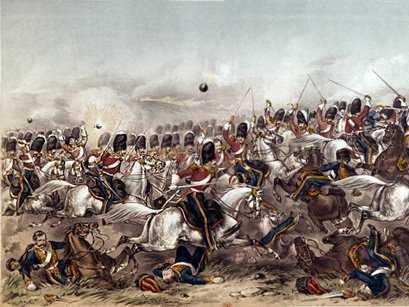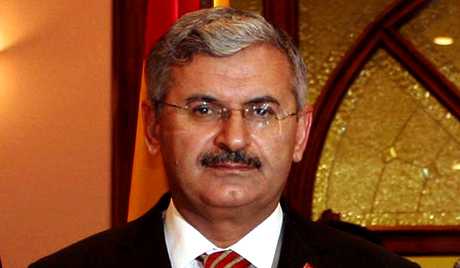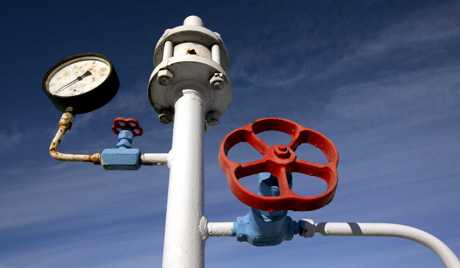 Morgan Freeman warned us in 1998, in the film ‘Deep Impact’.
Morgan Freeman warned us in 1998, in the film ‘Deep Impact’.
The first ever Black American president appeared on television and said:
“My fellow Americans… We are facing an ‘Extinction Level Event’.”
You probably saw in the news that a meteor exploded over Russia last
month, injuring 1,000 people…
From The Economist, 23rd February 2013:
“A 10,000 tonne meteor disintegrated over Chelyabinsk, a city in Russia
near the border with Kazakhstan. Its break-up released 500 kilotonnes
of energy, equivalent to the yield of a large nuclear bomb, blowing out
windows and injuring more than 1,000 people.
In 1908 a rock the size of a city block hit the Earth’s atmosphere at 15km
(9 miles) a second. The explosion flattened an area the size of London.
But the land in question was in Siberia, so few people noticed and those
who did had little influence. Suppose, though, it had devastated a city in
Europe or North America.
Well, it has happened again, when a meteor crashed int he Urals on
February 15th, injuring more than 1,000 people. Moreover, on the same
day, another, larger rock called 2012 DA14 passed within 27,000km
of Earth.
By astronomical standards, that is a hair’s breadth. It is time to think
seriously about stopping such incidents by building a system that can
detect space rocks with sufficient warning, and then either blast them
or push them out of the way.”
What you probably don’t know, is that another meteor exploded over
Cuba just one day later…
Meteor Explosion Over Cuba One Day After Russian Event
According to Red Orbit just one day after a spectacular meteor exploded over Russian skies, shattering windows and injuring more than a 1,200 people, Cubans were treated to a similar event, albeit on a much smaller scale.
Many of Cuba’s citizens watched in wonderment as a small fireball soared across the early evening skies on Friday before exploding. Startled residents described seeing the bright light in the sky just seconds before a thunderous boom sent shockwaves through the air, shaking windows and walls. While the Cuban meteor explosion was similar to the Russian event, it was by far smaller and, as a result, no injuries or damages were reported.
The Cuban event also occurred on the same day many Californians witnessed a small shooting star (meteorite) burning up in the night sky as it fell through Earth’s atmosphere over San Francisco.
According to NBC, one couple said they were surprised by the “bright, white fireball” streaking across the night sky. Around the same time residents in northern California witnessed a meteorite blazing across the skies overhead.
Jonathan Braidman, an instructor at the Chabot Space and Science Center in Oakland, told NBC that the California fireball was actually a small piece of asteroid. He said it is a fairly “common occurrence,” although they occur more commonly over sparsely-populated areas, perhaps where it is less likely that witnesses will observe them.
Several anonymous reports from citizens in Cuba said the explosion was impressive. One woman told state TV news agency CubaSi that her “home shook completely” and that she “never heard such a strange thing.”
It is not clear yet if the Cuban explosion was indeed from a meteor. Because Cuba lies so closely to the shores of southern Florida, it seems a major meteor streaking across the skies would have likely been spotted there as well, to which no reports have yet to surface. And a California-based telescope monitoring that specific area of sky had not picked up any unusual activity.
Scientists say that small meteorites hit the Earth several times per year, but larger events like the one over Russia are much rarer.
Professor Edwin Bergin, of the University of Michigan’s Astronomy department, told redOrbit on Friday that meteors like the Russian one “occur every 10 to 30 years or so.” And even larger ones, those larger than a half-mile wide, “occur once or twice every million years.”
As for the Russian event, a local scientist today recovered the first fragments of the giant meteor on the edge of a giant hole in a frozen lake near Chelyabinsk after a sizeable chunk of the exploded meteor came crashing down, according to RIA Novosti news agency.
Russian officials had searched the lake on Friday and Saturday but had turned up no results and suggested the hole may not have actually been caused by a meteor fragment.
However, Mikhail Udovinko, who is studying metallurgy at a local university, said he had found a small stone near the edge of the hole at the lake, and believes it is part of Friday’s meteor. He said that the stone responds to magnetism and has some weak radioactive properties.
Paul Abell, a scientist at the Johnson Space Center in Houston, Texas, has compiled new data for the meteor strike and said it was traveling at 46,000 mph when it hit the Earth’s atmosphere. Earlier reports placed the top speed at around 33,000 mph.
Abell said, according to ABC News, the meteor exploded in the atmosphere because its composition is stony, rather than metallic. The famous Tunguska asteroid that exploded over Siberia in 1908 was also stony, which is why it didn’t impact the Earth.
Metallic meteors are more likely to impact earth, leaving huge craters, much like a famous one found in Arizona.
More astonishing, was the fact that the Russian, Cuban and Californian events occurred on, or around, the same day that the 2012 DA14 asteroid made a historic close approach of Earth, flying by at nearly 17,000 miles overhead, closer than our own geosynchronous satellites, which typically orbit us at 22,000 miles.
But despite the occurrences coming on the same day as the 2012 DA14 flyby, experts said that none of the meteor events are associated with that asteroid.
However, these events are causing some level of concern about what else may be out there lurking in the dark and whether the planet can be protected from future events– ones that could possibly be ten, or even a hundred, times more destructive than the Russian event.
Members of The United Nations, The White House, and even Congress have all asked to be briefed on these events, Abell said.
One ambitious plan to take out asteroids and large meteors before they take us out has already been proposed by two California scientists on Friday as well.
The proposed system, called DE-STAR, would be designed to shift the orbit of large asteroids, possibly deflecting them away from the Earth. This system is designed to utilize the energy of the Sun, converting it into an array of lasers that can also destroy, or evaporate comets and meteors.
Another system is already in the works.
Planetary Resources, a company that has lofty ambitions to mine asteroids and meteors in space, recently announced that its Arkyd-100 Series spacecraft would assist in the assessment of potentially hazardous asteroids that could impact Earth.






